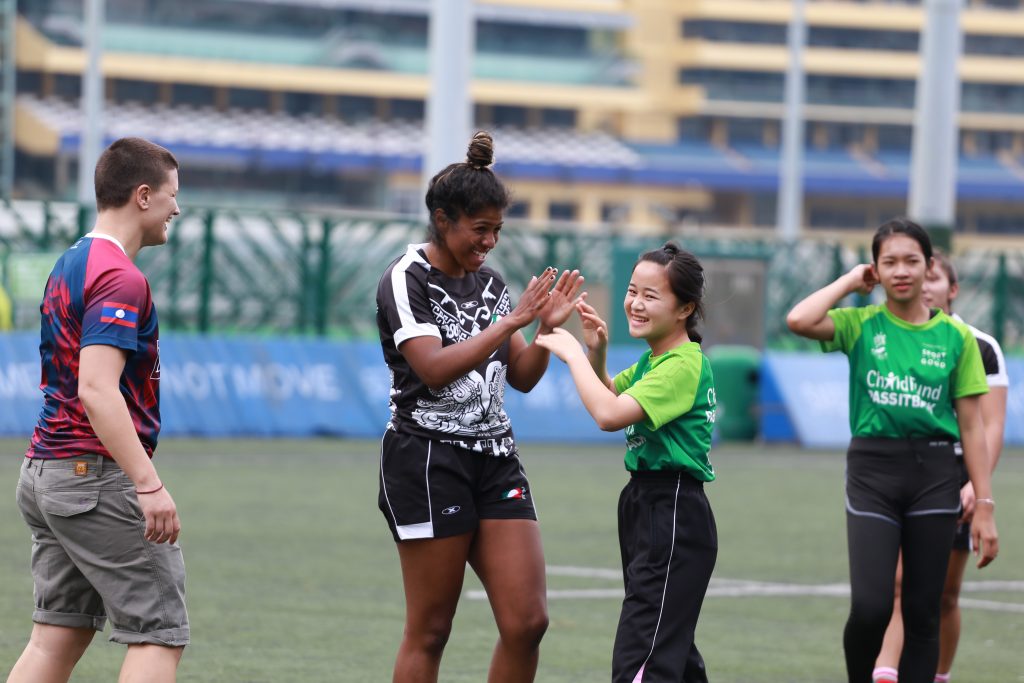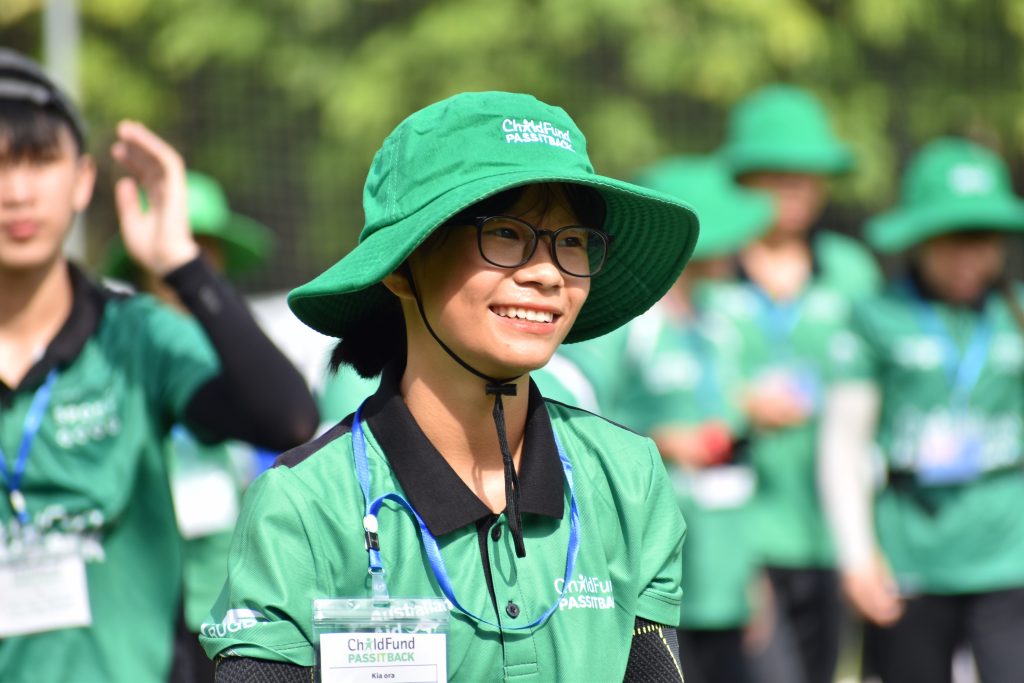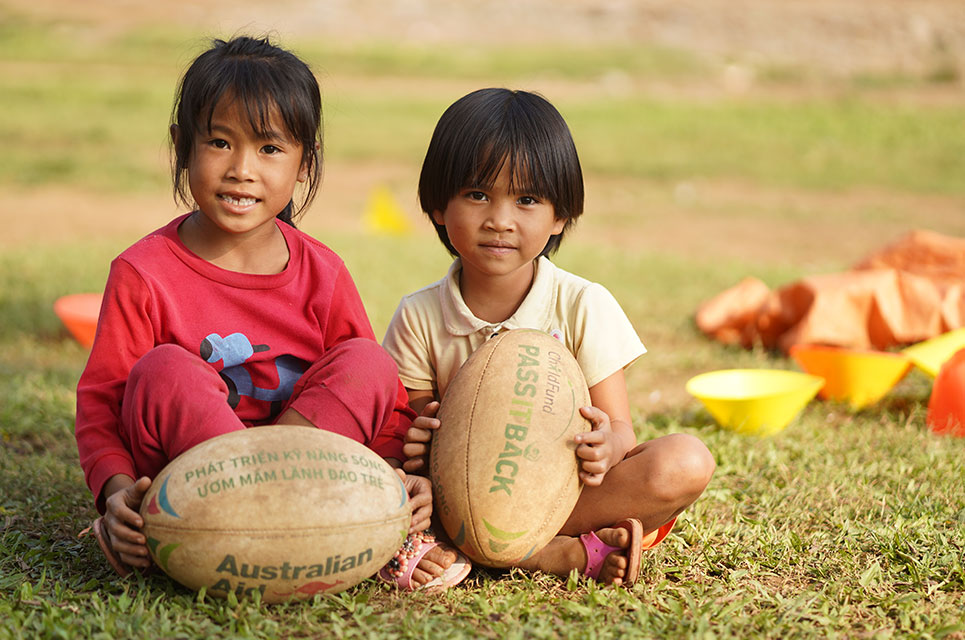Your basket is currently empty.
This International Day of the Girl, UNICEF is calling for everyone to support the theme: ‘My voice, our equal future’.
Two participants in our Pass It Back program, See Vang, a 16-year-old female player from Laos and Hai, a 17-year-old coach from Vietnam, wrote letters celebrating what International Day of the Girl means to them, the importance of role models and why girls should raise their voice for an equal future.
A letter from See Vang

See Vang in green, highfive-ing with a female rugby player during a trip to Hong Kong
Hello everyone,
During this celebration, I want to tell you about my role model, Mrs. Lao Khang.
As a Pass It Back player with the Lao Rugby Federation for 2 years, I played for Team Mou Pa (the Wild Boars). At first, when I joined the team as a player, I was very shy and I had no confidence in myself.
Lao Khang’s story inspired me because she is a good person. Lao Khang has a lot of rugby experience and she is very brave. I would like to follow her in rugby and in her work. I work hard to complete my work at home and for my family so that I can attend all rugby trainings and never miss.
Lao Khang is an honest person who works hard. All of these reasons make me want to be like her. Also she is a role model for others in our community and so I will work hard to be a role model in my community too.
I will take all the experiences I have gained from the activities and my role models to improve myself so I will have more confidence.
Thank you.
A letter from Hai

Hai at her first Coach Training in Vietnam in July 2019
Dear friends,
Gender equality has been embraced around the world for a long time now. However, in some places, gender prejudices still exist, sometimes leading to heated arguments. When I joined Pass It Back, I learnt more about gender through the Understanding Gender curriculum.
One time, while playing sports, I had an argument about gender discrimination. It was when I was playing football in my village’s playground with a group that had only two girls and mostly boys at the same age or younger than me.
Apart from us, many other male adults also came there every afternoon to play football, volleyball and other games. However, there were very few little girls and women – most of the time, we had only around 5-6 girls.
That day, when I was playing, a lady standing nearby looked at us and said: “What kind of girl are you who plays football? Do you see any other girls playing football here? Go home and cook for your parents. Your parents should have given birth to a boy.”
Hearing those words, I was furious and frustrated. I felt like I was being looked down on. Yet, I tried to keep calm and told her: “I am playing because I have finished all my housework.
“Also, men and women are equal now. If boys can play then girls can play too. Boys are not better than girls. You also have a daughter. Do you want to see her spend time and have fun with her friends?” She didn’t reply.
Some time later, it seemed like she had changed her mind and even encouraged her daughter to play sports. Day after day, more and more girls came to the playground to play not only football but also many other fun games. So, what do you think speaking up means? What would happen if we don’t let our voice be heard?
I think speaking up is to express our opinions about a certain issue. However, many people hesitate to speak their mind because they are worried about how other people will react. Nevertheless, if you stay silent, people might never abandon their outdated prejudices. Let’s speak up at the right time, in the right place, to protect your own rights and the rights of other girls.

